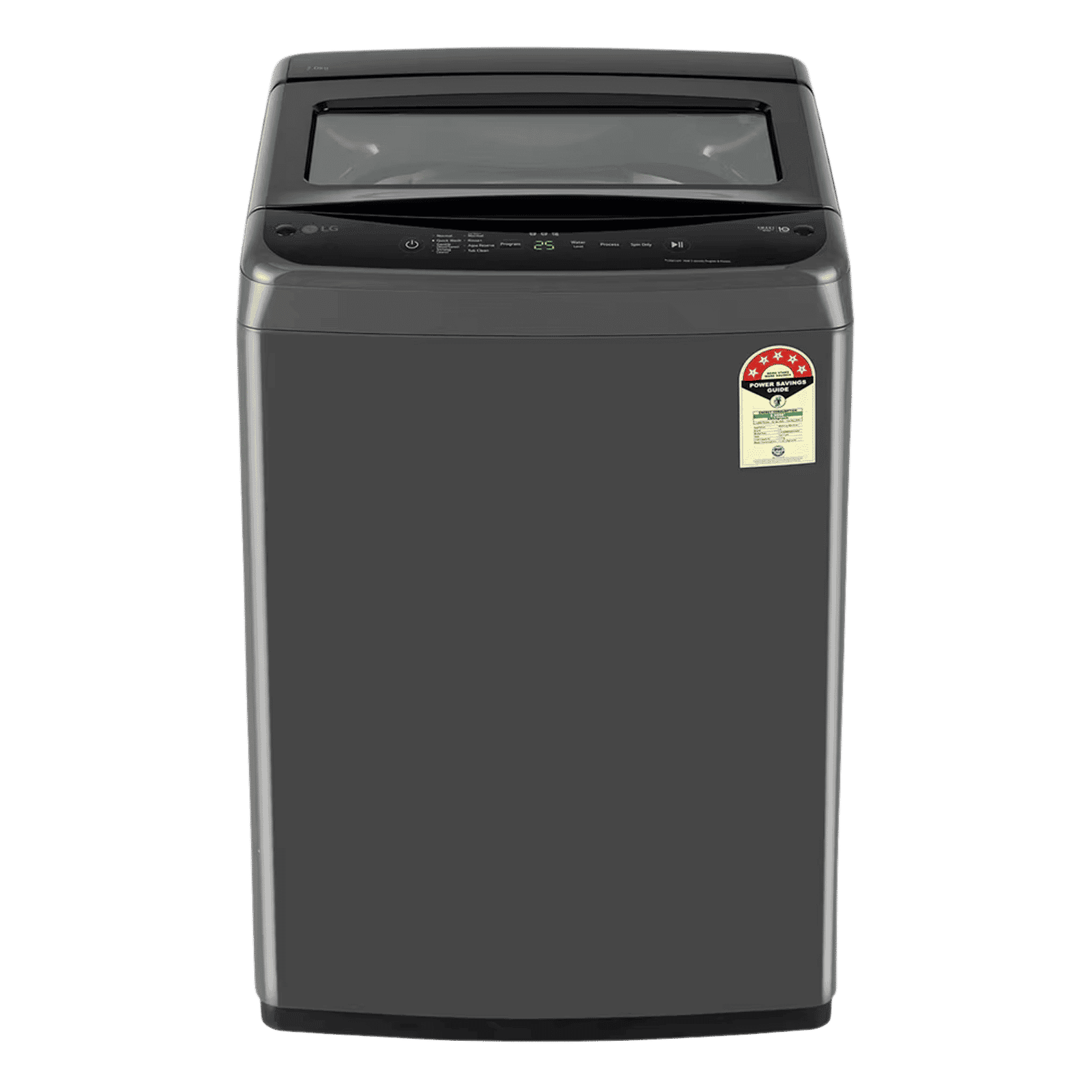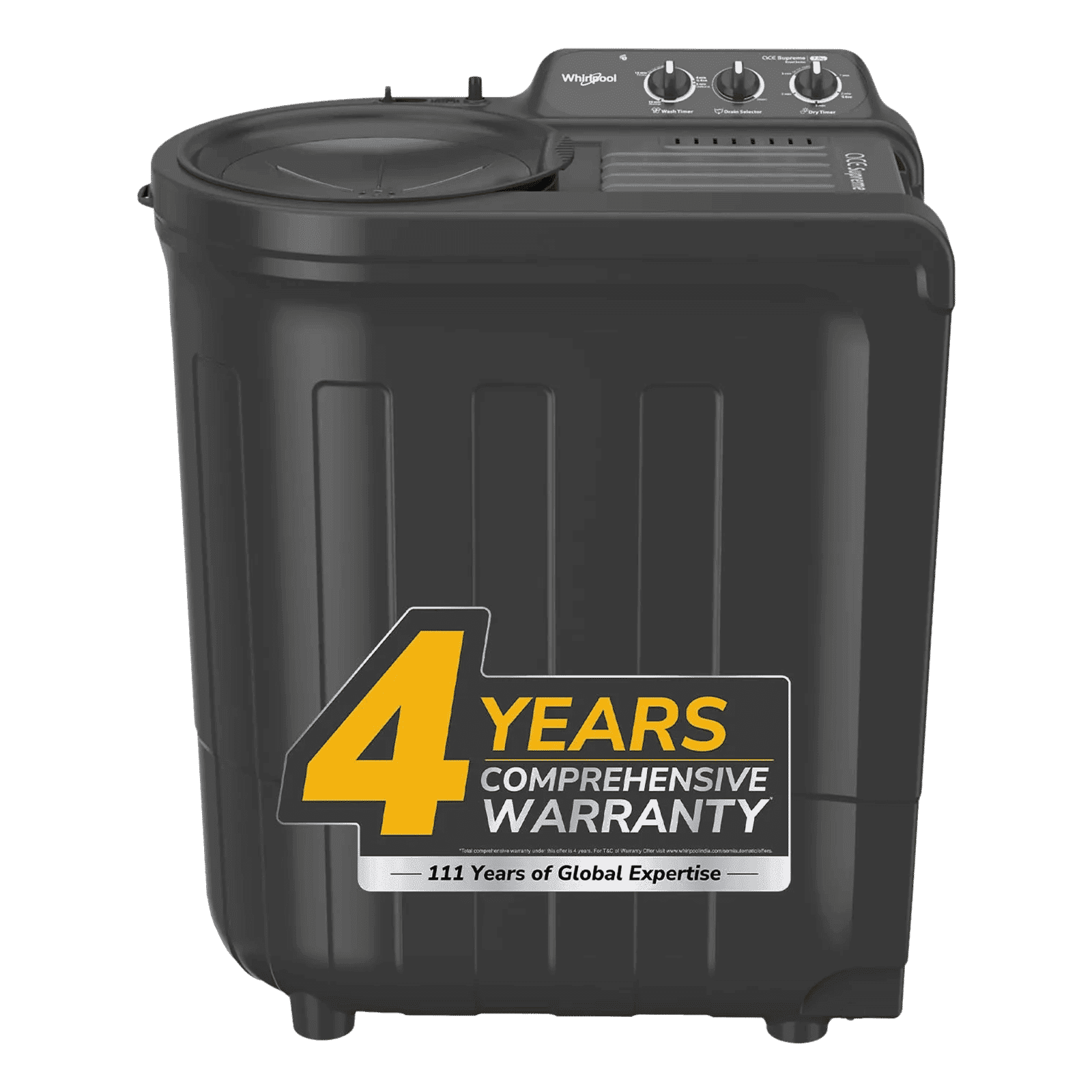
Home Appliances
•04 min read

Buy Whirlpool 7.5 kg 5 Star Fully Automatic Top Load Washing Machine (Magic Clean Pro, 31667, 6th Sense Technology, Grey) online at best prices from Croma. Check product details, reviews & more. Shop now!
Are you curious about how eco wash settings can revolutionise your laundry routine while saving energy and water? Eco wash washing machines have quickly emerged as a sustainable and energy-efficient solution for modern laundry needs, perfect for environmentally conscious households. This blog unpacks the frequently asked questions about the eco wash washing machine, offering clarity and actionable insights to help you embrace sustainable laundry solutions with confidence.
At its core, eco wash refers to a specialised setting in a washing machine that is designed to use less water and energy while still delivering excellent cleaning results. Unlike traditional settings, eco wash modes are fine-tuned to balance performance with sustainability, making them a popular choice among users who care about both their utility bills and the environment. These energy-efficient washing machines employ low water usage technology, ensuring optimal results without excessive consumption.
The magic of eco wash cycles lies in advanced green technology. Modern machines harness systems designed to optimise water flow and lower temperature cycles, effectively reducing electricity usage while maintaining high cleaning standards. These water-saving laundry appliances are built with high-efficiency washing machines technology that carefully calibrates every wash, aligning perfectly with the needs of eco-friendly washing appliances and environmentally friendly washers alike.
Eco mode cycles work by extending washing times to allow detergents and mechanical action more time to lift dirt and stains from fabrics, thereby using less water and electricity. While some may compare eco wash cycles to modes such as quick wash or cotton cycles, it is clear that the fundamental principle of an eco 40-60 washing machine, for example, is to maximise cleaning efficiency while minimising resource consumption. This methodology ensures that every load benefits from a balanced treatment of agitation and reduced heat without compromising hygiene.
One common question is, "Does eco wash take longer?" The answer is yes—extending the cycle duration is a deliberate strategy to afford enough time for detergents to act while keeping water usage low. Although this means longer cycles compared to quick wash settings, the benefits are apparent: a reduction in energy usage and a clear contribution towards environmental protection without sacrificing cleaning quality.

Buy LG 7 kg 5 Star Inverter Fully Automatic Top Load Washing Machine (T70VBMB4ZD.ABMQEIL, Smart Diagnosis, Middle Black) online at best prices from Croma. Check product details, reviews & more. Shop now!
One of the main advantages of choosing an eco wash washing machine is the notable reduction in electricity consumption. By operating at lower temperatures and using less water, these machines help in decreasing overall energy bills. As more households shift to energy-efficient washing machines, the cost savings become visible over time, making sustainable laundry solutions more viable for the budget-conscious while contributing to a greener lifestyle. Furthermore, savings on utilities mean you can redirect those funds towards other essential needs.
Eco wash settings play a critical role in reducing your home’s carbon footprint. With an emphasis on low water usage washing machines and green technology laundry machines, these appliances help conserve water and reduce power consumption, ultimately benefiting the planet. For those who value sustainable living, investing in eco-friendly washing appliances ensures that every load of laundry aligns with an eco-conscious lifestyle, a step forward for washing machines for eco-conscious homes.
Did You Know?
Switching to eco wash settings can save up to 50% more water and energy compared to standard cycles, making it an ideal choice for those aiming to reduce their environmental impact.
When deciding between a front-load eco washing machine and a top-load model, there are several factors to consider. Front-load machines are typically praised for their high efficiency, using less water per cycle and often delivering superior cleaning results due to the tumbling action. On the other hand, top-load models can be a reliable alternative and offer ease of use. Comparing these options in terms of water consumption, cycle time, and overall performance can help you make a suitable decision based on your specific laundry needs.
Essential features to consider when selecting an eco wash washing machine include high energy star ratings and verification as sustainable laundry solutions. Look out for machines with clearly marked eco modes that incorporate smart technology to reduce water usage without compromising on performance. Whether you are considering a low water usage washing machine or a high-efficiency washing machine, understanding these features will empower you to choose the right appliance for your home, keeping your green ambitions and your budget in mind.
There’s a prevalent debate regarding whether eco wash is better than quick wash cycles. The primary difference lies in their objectives: while quick wash is designed for speed and is ideal for lightly soiled garments, eco wash prioritises efficiency and sustainability. Although eco wash cycles take longer, they deliver excellent cleaning results with responsible resource consumption, making them the smarter choice for everyday use when balanced cleaning is desired.

Buy Whirlpool 7.5 kg 5 Star Semi Automatic Washing Machine with In built Scrubber (Magic Clean, 30291, Grey) online at best prices from Croma. Check product details, reviews & more. Shop now!
Another common myth is that eco wash might compromise cleaning quality. However, modern eco wash washing machines are meticulously engineered to strike the perfect balance between cleaning performance and energy conservation. By utilising innovative washing techniques and optimised water flow, these machines ensure that even the most stubborn stains are effectively removed, all while reducing the environmental footprint.
Eco wash is a specialised setting designed to minimise water and energy usage while still providing effective cleaning performance.
While eco wash is better suited for reducing environmental impact, quick wash cycles might be more convenient for lightly soiled garments when you need a faster result.
Yes, using eco mode is ideal for conserving energy and water, making it a popular choice for sustainable laundry solutions.
Indeed, eco wash cycles are designed to take longer in order to achieve thorough cleaning with reduced resource utilisation.
This exploration of the eco wash washing machine has showcased how these appliances embody a balance of effective cleaning and sustainability. They reduce energy consumption and water usage, aligning perfectly with the demands of modern, eco-conscious living. For families, tech enthusiasts, young professionals, and students alike, adopting an eco-friendly washing appliance is not only a smart economic decision but also a meaningful step towards supporting a sustainable future. With features designed to lower utility bills and the promise of retaining garment quality, the eco wash option proves itself as a wise investment in both home care and the environment.
As you continue to explore innovative solutions for everyday tasks, remember that each eco-friendly choice contributes to a broader movement for a cleaner, greener planet. Embrace the benefits of eco wash technology and join the journey towards smart, sustainable living, where every load of laundry becomes an opportunity to save energy and care for the environment.